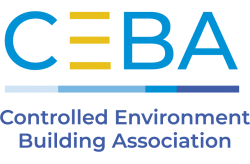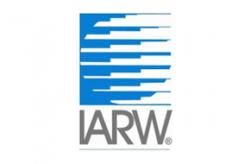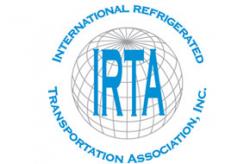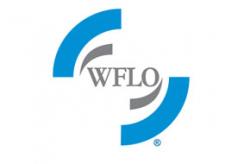HR Legal and Regulatory Concerns
Four issues off er challenges and opportunities for the cold storage industry.
Creativity, innovation and flexibility were important words in 2020, as cold storage human resource leaders quickly changed plans, processes and in some cases, policies, to keep employees safe and on the job to ensure that essential services provided by their companies continued to operate.
With the “pandemic year” behind everyone and vaccinations and a return to normal life on the horizon, it is necessary to look ahead at issues facing HR professionals in coming years. In “2021: The Year Ahead for Employers,” experts take a look at trends, legislation, regulation and litigation that might impact employers.1 Four of those issues include benefits and leave policies; diversity, equity and inclusion; immigration policy changes; and a potential increase in minimum wage.
Health Measures, Benefits and Leave
Benefits and leave policies were evaluated closely during 2020 to ensure employees had the time and health coverage needed for illness, family issues or quarantine requirements following exposure. “Throughout 2020, we were flexible with our personal time off (PTO) and we will continue to be flexible to allow our associates to care for themselves and their families,” says Lisa Chasey, Vice President of Compensation and Benefits at Americold. Although benefits and leave policies will not change in 2021, she does say there will be an adjustment as the company and team members handle what “going to work” looks like, especially those who worked remotely. Not only does technology support a remote workforce for some positions, but team members who come into the workplace will probably continue some of the health protection activities adopted in 2020, such as handwashing, social distancing and wearing masks, Chasey adds. While some companies in the United States and Canada chose to raise wages for their essential employees during the pandemic, Canadian-based Congebec approached financial benefits for workers differently. The extra $2 per hour paid by some Canadian companies presented two challenges that Congebec wanted to avoid: the negative perception that working in cold storage was hazardous during the pandemic and warranted hazard-pay, and the negative effect of taking away the extra pay once the pandemic is in the past.
“Once you add an hourly increase, it is difficult to remove,” says France Pomerleau, Vice President of Human Capital and Communications at Congebec. Instead of a “temporary” wage increase, Congebec created “care measures” that were $250 payments to each employee to supplement their wages. “Two payments, one before the summer of 2020 and one early in 2021, were designed to help employees with pressures at home such as a spouse not working,” she explains. “Our employees were grateful because they appreciated that we acknowledged that they may need help outside work and we wanted to support them.” A COVID-related issue that employers may face in the upcoming year is COVID vaccinations, says David Mohl, a Principal in the Atlanta, Georgia, office of Jackson Lewis, GCCA’s employment law service provider. “COVID vaccinations present a number of issues for employers to navigate, including whether to encourage or require employees to be vaccinated, how to manage time off should employees be unable to work due to any vaccination side effects, and whether and how to offer employee incentives for employees who get vaccinated,” he says. Human Resource leaders will also have to determine how to handle disability or religious accommodation requests that employees may raise in the event vaccination is required.
“This is a dynamic and evolving area where the law continues to develop as the pandemic progresses,” Mohl adds. Pomerleau points out that her company’s issue with vaccinations differs from U.S. companies. “Americans are receiving vaccines much faster than Canadians, in fact, none of my workforce is currently vaccinated, and we don’t anticipate them receiving vaccines before the summer,” she says. The high level of stress associated with multiple surges of the virus, along with the existing difficulties finding employees, will continue to make staffing difficult, she adds.
Diversity, Equity and Inclusion
With an increasing emphasis on diversity, equity and inclusion (DEI) throughout society, it is critical that HR professionals strive to create an environment where all different kinds of people can thrive and succeed, says Michelle Phillips, a principal in the White Plains, New York, office of Jackson Lewis, who advises employers on promoting an inclusive workplace. She recommends strategies that include expansion of employee resource groups, mentorship programs and diversity champions to ensure that traditionally excluded individuals or groups have equal access to opportunities and resources. Burris Logistics’ mentorship program was established in 2019 to retain talent and develop leaders within the company, and a key focus is reaching out to individuals of all ages, genders, races, and socio-economic and cultural backgrounds who do not typically volunteer for opportunities, says Laura McCann Ed.D., SPHR , Director of Talent Management.
“We also share career stories of our senior leaders, trainers and managers whose stories might trigger some recognition in our diverse groups – leading them to realize that they can pursue and be successful at different positions in the company,” she says. “Our frontline employees are a diverse group, but the mentorship program is one way we are improving our pipeline of diverse future leaders,” says McCann. Position openings are posted on job boards seen by a variety of different audiences, including historically Black colleges and universities, she adds.
Like many companies, Burris also offers employees an opportunity to further their education with a tuition reimbursement program. However, the company found there were employees who wanted to participate but did not have the funds to pay for tuition upfront, which limited access to the benefit. “We changed the program to pay for employees taking courses online through our partnership with the University of Arizona upfront and have already had six people participate,” says McCann. To qualify for the program, employees must have one year of full-time employment at Burris and continue employment for two years. “We also added a discount for family members of our employees to encourage others to continue their education.”
Americold’s strategy for DEI is continually evolving and includes a variety of policies and cultural norms, including encouragement of behavior to promote inclusion and access for all individuals, says Chasey. “We have antidiscrimination policies and we are providing additional training to help employees and managers recognize unconscious bias in the workplace,” she says. The company also conducted a pulse survey that asked employees to share their ideas for improving the work environment at Americold. One of the policy changes resulting from responses to the survey is the addition of two floating holidays that employees can use to celebrate any days important to their family, culture or religion in addition to the standard, company-wide holidays. The day away from work must be approved by a supervisor as any PTO would, but the additional holidays are a sign of respect and recognition of employees’ different needs, says Chasey “Our company values promote inclusion and we do not tolerate harassment of any individuals or groups, says Pomerleau. While she admits that they are always looking for more women to work in all areas of the company, she says they celebrate the number of countries and beliefs their employees represent. “A posting on Facebook shows the success of our inclusion efforts by showing over 40 flags representing our employees’ countries of origin as well as flags such as the LGBTQ+ flag.”
Immigration Policies and Issues
“As business and industry return employees to the workforce, we anticipate that ICE, the U.S. Department of Homeland Security’s enforcement division, will return to worksite investigations to include I-9 compliance, E-Verify monitoring and verification that employers are not employing unauthorized workers,” says Maggie Murphy, Office Managing Principal for the Austin, Texas, office of Jackson Lewis, and a specialist in workplace immigration law. “ICE had to shut down its onsite investigation activities last year, so we expect them to be back in full force by the second half of 2021.” If employees were hired “remotely” or “virtually” because the worksite was closed due to COVID-19 restrictions, those records must be reviewed, and certain protocols must be followed to make sure the employee’s documents are checked upon their return to the workforce, she recommends. “If a foreign national worker’s documents expired during a forced shut down, their documents must be updated upon return to work, and E-Verify employers should run reports to make sure that E-Verify was run for new hires.” In addition to maintaining and updating foreign national worker documents, the best course of action is to stay updated on new policies. “We will continue to monitor changes to immigration policies to see how we can best support our current associates,” says Chasey.
Potential Minimum Wage Increases
Although an increase in the U.S. federal minimum wage will most likely not affect the majority of cold storage companies, it is important to monitor the issue. “The dynamic of our industry is a constant adjustment to offer competitive wages to attract talent, which means our wages are often already over the minimum wage proposed,” says Chasey. “An increase would have minimal impact on our company.” “A minimum wage increase would not be a heavy lift for us,” says McCann. “We continuously monitor pay studies to make sure we are competitive.” Companies that have national operations that span multiple states and cities will have to continue monitoring state and local level wage mandates, says Justin Barnes, Attorney, in the Atlanta, Georgia, office of Jackson Lewis. “Efforts to increase minimum wages at the local level stemmed from a lack of increase at the federal level, but while a federal minimum wage increase could increase uniformity, it is likely that it would not be high enough to eliminate all local mandates.” There is no national federal minimum wage in Canada, but each province sets its own minimum wage, says Pomerleau. “In Alberta, the oil and mine industries drive the economy, which means wages are higher in the province than others,” she says. “In Quebec, the minimum wage is under $15 but our company’s minimum is $19 per hour because we require employees to hold certifications for different positions, such as forklift driver, and the higher wage is needed to attract employees to cold storage jobs.”
“I encourage businesses to find a reputable source for minimum wage increases and review that data in comparison to the company’s existing wages to evaluate the impact an increase at the federal level would have on their businesses,” says Barnes. Monitoring minimum wages, immigration policy changes, DEI initiatives and benefits along with the myriad of other issues facing HR professionals in the coming year may seem like a daunting task, but Chasey has a positive take on the experience of 2020 and the challenges of 2021. “We had a wonderful opportunity in 2020 to think outside the box and come up with meaningful practices that improved our companies,” points out Chasey. “By staying on top of issues facing us in the coming year, and evaluating their effect on our businesses, we can continue to have a positive impact on our companies and our employees’ lives.”
Reference:
“2021: The Year Ahead for Employers.” Jackson Lewis P.C. https://www.jacksonlewis.com/ publication/2021-year-ahead-employers
SHERYL S. JACKSON is a freelance writer based in Alpharetta, Georgia, who specializes in industry issues and trends.
EMAIL: sherylsjackson@bellsouth.net
Source: Cold Facts May/June 2021 issue



